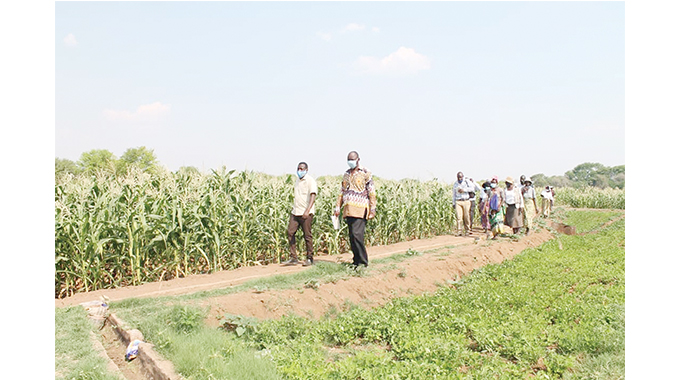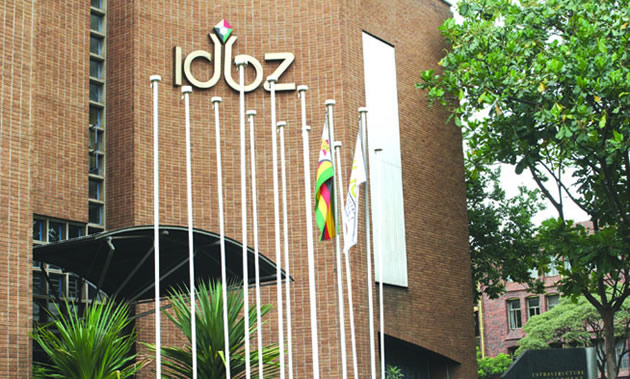Vandalism, theft disrupting irrigation activities

Sukulwenkosi Dube-Matutu, Matabeleland South Bureau Chief
VANDALISM and theft have been identified as major causes of non-functioning irrigation schemes in Matabeleland South Province, a Zimbabwe Vulnerability Assessment Committee (ZimVac) report has revealed.
According to the Zimbabwe Vulnerability Assessment Committee (ZimVac) 2022 Rural Livelihoods Assessment Matabeleland South Provincial Report, 23 irrigations were fully functional, 22 were partially functional and 12 irrigation schemes were not functional in the province.
Other reasons include broken down equipment, incomplete installation of infrastructure, lack of capital, need for rehabilitation works, silted dams and inadequate water.
Irrigation farming is critical in Matabeleland South Province as the area receives low rains making it difficult for farmers to practise dry land farming.
One of the irrigation schemes which has been severely affected by vandalism and theft is Makwe Irrigation Scheme in Gwanda.
The 200-hectare irrigation scheme which is the largest communal irrigation scheme in Gwanda has been lying idle for the past five years after power supply to the irrigation scheme was disrupted because of theft of copper cables.
Work to rehabilitate Makwe Irrigation Scheme in Gwanda has started and is expected to be completed by year end.
The irrigation scheme is being rehabilitated under the Government led Small Holder Irrigation Revitilisation Programme (SIRP). SIRP was launched in November 2017 with the aim to assist the revitalisation of irrigation schemes across the nation through rehabilitation of infrastructure. It is a Government led programme funded by the International Fund for Agricultural Development (IFAD).
Government working with various partners is rehabilitating irrigation schemes that have been lying idle in Matabeleland South Province to improve food and nutrition security and ensure attainment of Vision 2030.
Presenting the provincial ZimVAC report during a meeting in Gwanda yesterday Food and Nutrition Council (FNC) programme officer Mr Alpha Ndlovu said provinces and districts have to come up with response strategies to address food and nutrition security challenges that have been identified under the ZimVAC report.
“There were about 57 irrigation schemes reported in Matabeleland South. Of these 23 irrigation schemes were functional, 22 schemes were partially functional and 12 schemes were reported as non-functional,” he said.
“The major reasons for non-functionality were vandalism and theft at 75 percent. The main reason for partial functionality of irrigation schemes was unpaid electricity bills and seasonality of water source. The most grown crops in the irrigation schemes were cereals, followed by sugar beans and green leafy vegetables.”
FNC has rolled out dissemination meetings for the 2022 (ZimVAC) Rural Livelihoods Assessment in all districts and provinces in the country.
The meetings which started on Monday will end on Friday.
The purpose of the meetings is to get feedback on the ZimVAC report from stakeholders, compile a response and share information for use for planning and decision making.
“The purpose of the dissemination meetings is to share findings of the ZimVAC findings for 2022 and to stimulate planning from the side of different stakeholders to respond to the findings. Earlier the national report was disseminated and now we are sharing the down scaled results which are province and district specific. We expect stakeholders to go into their various sectors and further interrogate the results and identify strategies where there are gaps and also seek clarification where needed. We expect stakeholders to conduct a detailed assessment,” Mr Ndlovu said.
Matabeleland South Provincial Affairs and Devolution Minister, Cde Abedinico Ncube said vandalism has remained a major threat to the country’s economy. He said there is need for citizens to assume ownership of projects and wealth in their areas instead of compromising them. Under the coordination of the Food and Nutrition Council, the Zimbabwe Vulnerability Assessment Committee (ZimVAC) undertook the 2022 Rural Livelihoods Assessment in all the 60 rural districts of the country in the Month of May.
The 2022 Rural Livelihoods Assessment was motivated by the need to provide credible and timely data to inform progress of commitments in the National Development Strategy 1 (NDS 1) and inform planning for targeted interventions to help the vulnerable people in both their short and long-term vulnerability context.
The assessment covered thematic areas which include education, food and income sources, income levels, expenditure patterns, food security, Covid-19, WASH, social protection and Gender-Based Violence, among other issues. – @DubeMatutu








Comments